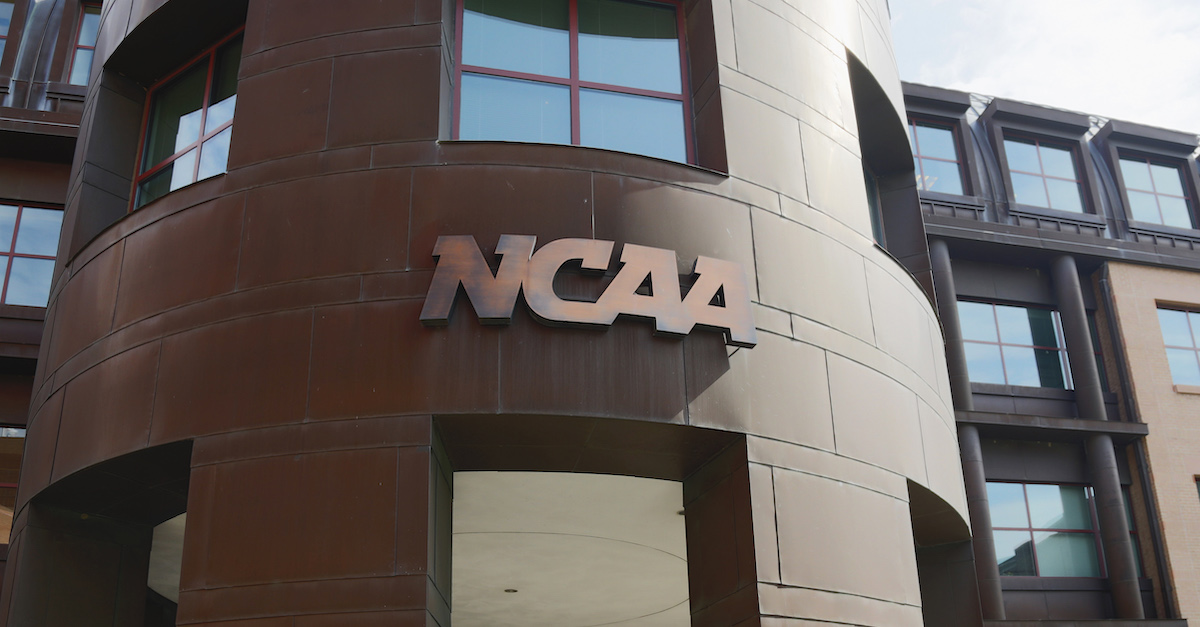
A three-judge panel of the Ninth Circuit Court of Appeals on Monday unanimously sided against the NCAA, upholding a lower court ruling that college athletes are entitled to receive more non-cash benefits from their schools. Under the ruling, athletes may be entitled to receive computers, science equipment, musical instruments, and certain other items from schools.
The case raised questions of antitrust law – a body of law meant primarily to encourage competition and support consumer welfare. At issue was whether the NCAA’s “amateurism rules” conflict with the Sherman Antitrust Act.
The district court ruled that NCAA limits on student benefits were an unreasonable restraint of trade, and enjoined the NCAA from enforcing its rules.
The ruling could have gone even further and also thrown out NCAA rules on non-educational benefits. In this case, the district court declined to do so. The ruling was also limited in scope in that it applied only to athletes playing in Division I Football Bowl Subdivision (FBS) or men’s or women’s basketball.
The NCAA had advanced the argument that its amateurism rules increase overall demand for college athletics – but the Ninth Circuit simply wasn’t having it. Writing for the unanimous three-judge majority, Chief Judge Sidney R. Thomas said that there was “ample support” for finding that allowing education-related benefits, “has not and will not repel college sports fans.”
The court rejected the NCAA’s argument that it needs caps on benefits in order to save money; the NCAA, the court found, will actually come out ahead. Enforcing the caps requires significant resources, and without the need to enforce them, the NCAA will do just fine.
To further clarify his thinking, Judge Milan D. Smith (a George W. Bush appointee) penned an additional concurrence explaining that he believes antitrust law is being used to deprive young athletes, “of the fundamental protections that our antitrust laws were meant to provide them.”
Judge Smith wrote at length about the plight of the college athlete:
Student-Athletes are talented, hardworking individuals who have dedicated their young lives to excelling in specific sports…. [T]hey are often forced to miss class, to neglect their studies, and to forego courses whose schedules conflict with the sports in which they participate…. Meanwhile, the grueling hours and physical demands of college sports carry significant health risks, such as sleep deprivation, stress, broken bones, and even potential brain damage…
And it’s not just that these athletes deserve compensation for their work; it’s an issue of now-or-never timing:
Despite their best efforts, however, fewer than 5% of Student-Athletes will ever play at a professional level… In short, the college years are likely the only years when young Student-Athletes have any realistic chance of earning a significant amount of money or achieving fame as a result of their athletic skills.
All of this, Smith wrote, is grossly unfair given that universities earn billions from ticket sales, television contracts, and merchandise. Smith delivered the final blow to the NCAA, accusing it of unfairly profiting on the backs of the students it seeks to restrain:
The treatment of Student-Athletes is not the result of free market competition. To the contrary, it is the result of a cartel of buyers acting in concert to artificially depress the price that sellers could otherwise receive for their services.
While some student athletes will now be better able to enjoy benefits conferred by their institutions, the Ninth Circuit’s decision doesn’t square with decisions in other circuits. Likely, the NCAA will appeal this decision to the United States Supreme Court to settle the matter once and for all.
[Image via Joe Robbins/Getty Images]